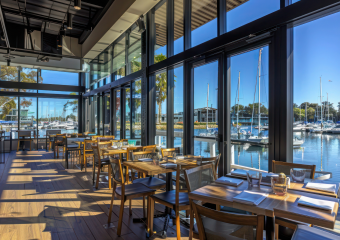Leadership Lessons from the Front of House: DinersAI Interviews
Leadership within the hospitality industry, particularly in the bustling environment of a restaurant’s front of house, is a unique beast. Unlike traditional corporate settings where leadership often follows a guidebook of best practices, the frontline leaders in a restaurant face high-pressure situations, diverse staff and customer personalities, and the immediate feedback loop offered by daily service. Insights from these dynamics can be invaluable, not just within the industry but to anyone interested in what resilient leadership looks like.
The Crucial Role of Emotional Intelligence
One standout theme from multiple interviews conducted by DinersAI is the critical role of emotional intelligence in successful front-of-house management. Effective leaders in this space excel at reading the room — not just the dining room, but the emotional and psychological state of their team. Employees in this field often deal with high stress, fluctuating work hours, and the immediate need to resolve conflicts, all of which demand a leader who can empathize and react swiftly and appropriately.
Emotional intelligence allows leaders to guide their teams through the pressures of a busy night by recognizing stress signals early and managing them effectively before they escalate. This skill also facilitates better customer interactions, helping to ensure that diners leave with a positive impression, irrespective of any hiccups during their visit.
Fostering Team Unity and Collaboration
Leadership within the front of house also hinges significantly on the ability to foster a sense of unity and collaboration among staff members. Unlike jobs where most work is done independently, restaurant staff must operate like a well-oiled machine, anticipating each other’s moves, supporting each other dynamically, and communicating effectively under pressure.
One interesting takeaway from the DinersAI interviews is how seasoned leaders nurture this environment. Many adopt a hands-on approach, not shying away from jumping into any role, be it bussing tables or handling the cash register, to lead by example. This not only sets a standard but also builds respect and a sense of camaraderie among the team.
Handling High-pressure Situations Gracefully
High-pressure situations are daily occurrences in the front of house. How leaders handle these can make or break the dining experience for customers. The interviews highlighted several key strategies adopted by front-of-house managers. These include maintaining a calm demeanor, quick problem-solving skills, and always having a contingency plan.
Leadership here requires an ability to stay cool under pressure, a trait that serves well in any high-stakes business environment. The capacity to quickly assess a situation, decide on a course of action, and communicate it clearly and directly addresses immediate challenges while minimizing stress and confusion among the team.
Adapting and Innovating Continuously
The front of house does not operate in a static environment. Leaders must continuously adapt to changes — be it in customer preferences, technological advancements, or operational modifications. Being open to innovation, whether it involves incorporating new technology, trying out different layouts, or experimenting with new customer service techniques, is vital.
From the DinersAI interviews, it’s clear that the most respected leaders are those who view change as an opportunity rather than a threat. They involve their teams in the change process, which not only helps in smoother implementation but also boosts team morale and ownership over new initiatives.
Conclusion
The lessons in leadership from the front of house, as explored through DinersAI interviews, offer a fascinating glimpse into what it takes to lead effectively in an environment where pressure, immediacy, and customer interaction converge so intensely. These leaders excel not just in managing but in inspiring, adapting, and innovating in ways that translate well beyond the restaurant floor. Their experiences provide valuable strategies for anyone looking to enhance their leadership skills in any fast-paced, service-oriented setting. Understanding and implementing these principles can lead to better management practices, improved team dynamics, and superior customer interactions in any business sector.





